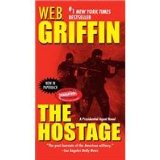This week Circle City Books and Music became the unexpected recipient of more Facebook attention than Tom Cruise’s date registry. Does that sound like an exaggeration? I suppose. But when, on Wednesday, the turnstiles started clicking faster than I could keep up, that’s how it seemed. We created our Facebook page August 1 and after five weeks, thanks to a large and indulgent family and several friends, 31 people had “Liked” us; fewer than one per day. Then Wednesday hit and in the space of about six hours 27 new people, mostly strangers, were added to our “Like” roster.
There is a lot about Facebook that I don’t understand. How is it that for weeks virtually no one had visited the Circle City page, then, all of a sudden, cascades of new people appear on the site? I know 27 people won’t exactly crash anyone’s server, but for us it was a 2700 percent increase in daily traffic. If your 401K had that kind of one day increase, you’d notice it. But does it mean anything? Are these future customers or are they the inhabitants of the online world and, as such, Amazon shoppers? And where do they get off calling this thing a ‘book’? A book is a tangible object with a finite and measurable mass; Facebook is the opposite of that.
In any case, after the initial shock wore off, I tried to take advantage of this apparent interest in our store before these disembodied souls had time to dissolve into cyberspace never to be heard from again. I posted a community survey, asking the community to tell me what they like to read. What genres, what books, what authors. This is something that couldn’t have been done 30 years ago when I was last in the bookselling business. But if 30 people tell me now, as one respondent already has, that they want “science fiction, fantasy, urban fantasy and horror,” that will certainly change my approach to book buying.
I have been cataloging, shelving and pricing books in the mystery, suspense and thriller categories this week. I am grouping these all together, and I have something like 1,000 more of these books than will fit on the shelves. It’s easy to cull out duplicates, but I need to avoid assigning shelf space to authors who no longer sell. Jack Higgins, for instance? The Wolf at the Door, which came out in 2011, today ranks 145,613 on Amazon. He must still sell in Britain, but that won’t help me sell the five copies I have packed away in boxes. Thirty years ago my shelves were filled with Alistair MacLean, John D. McDonald, Philip K. Dick, Ed McBain, Len Deighton and John le Carré. Today these writers are out of fashion, succeeded by the likes of James Patterson, Lee Child, J.D. Robb  and Vince Flynn. Another thing that has changed is the length of these books; 400 pages is succinct storytelling for this era. W.E.B. Griffin needs more than 700 pages to deal with one hostage; ah, for the days of Agatha Christie who could cross Europe on the Orient Express in fewer than 300 pages. My shelves sag under the weight of these tomes, as does my books per shelf ratio.
and Vince Flynn. Another thing that has changed is the length of these books; 400 pages is succinct storytelling for this era. W.E.B. Griffin needs more than 700 pages to deal with one hostage; ah, for the days of Agatha Christie who could cross Europe on the Orient Express in fewer than 300 pages. My shelves sag under the weight of these tomes, as does my books per shelf ratio.
As the books keep arriving, I keep building shelves; another four today. While I labor outside, in view of neighbors and pedestrians, I have been fielding questions from the curious. The most common question is, “When will I be hiring?” The answer to this, sadly, is not anytime soon. First, I need to determine if this store can afford to pay me. I would love to be a job creator, but the real job creators are consumers who, by spending money in their local bookstore, are the only ones that can make it possible for me to start passing out jobs. Let’s hope they take that responsibility seriously!


I’ve noticed the increase in fantasy, horror and vampire lit. I abhor horror, but so many love to be terrified by, well, everything. Crime fiction does change–no one picks up locked room mysteries anymore, unless into the Golden Age of Detective fiction. There are, however, a great deal of women writers in this field that have almost, almost crossed the line and become as well known and respected as the males. I’m talking about detectives and suspense. Laura Lippman, Jan Burke, S. J. Rozan are but a few. Hope you have some of thiers on hand.
I’m finding that I’m going back to the older fiction like Le Carre and Christie because they knew how to construct a sentence and didn’t use as much filler as they do today! I still look at current mystery and thrillers but less of that stuff stays on my bookshelves than the older stuff I’m buying.